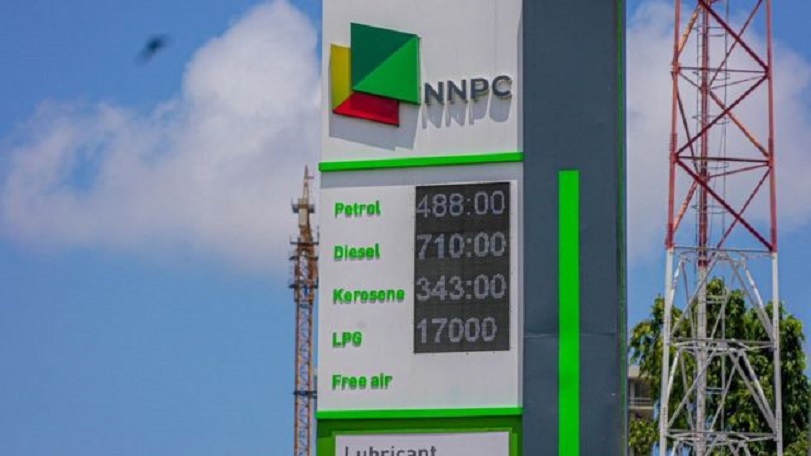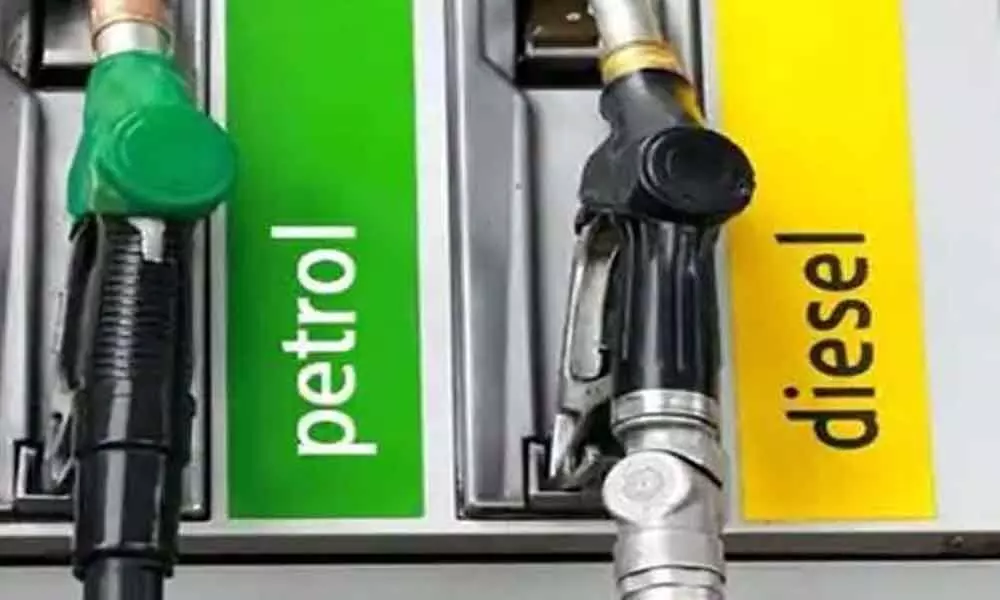According to oil marketers, the price of Premium Motor Spirit, also known as petrol, could increase at the pump due to the rising cost of crude oil and the naira’s depreciation versus the US dollar.

Additionally, it was learned that the Federal Government had gradually increased the amount secretly spent as a petrol subsidy as a result of the dramatic increase in crude oil prices to roughly $94 per barrel and the FX crisis.

Over 80% of the price of PMS was determined by the price of crude oil and the dollar’s value at the time, according to downstream oil dealers.
The price of Brent crude, the world’s standard for oil, increased to $94 a barrel on Sunday, the highest level since 2023. Oil started the year at around $82/barrel, fell below $70/barrel in June, but has recently traded above $92/barrel.
READ ALSO: Osun Government Alleges Sabotage Over Averted Plane Crash Involving Governor Adeleke
Recall how the naira declined against the dollar the day before (Wednesday), falling further to N950/$ after closing at N950/$ at the parallel market, as forex shortage grew.
The naira, which had previously closed at 930/$ at the close of business on Tuesday, was purchased and exchanged at 935/$ and 950/$ on Wednesday, Bureau de Change operators had previously claimed.
Operators argued on Sunday that the government was administering a quasi-subsidy even though the Federal Government and the Nigerian National Petroleum Company Limited had insisted that the subsidy on fuel had stopped as a result of the liberalisation of the downstream oil sector.
They emphasised that if the government insists on keeping the commodity at N617/litre, then subsidy on PMS has been quietly returned. They noted that with the most recent increase in crude oil price, the cost of petrol was expected to climb.
The marketers said that in July, when the price of fuel was increased to N617 a litre, crude oil traded at about $82 per barrel, while the parallel market exchange rate was just N950.
The Nigerian Association of Road Transport Owners echoed the worries of marketers, stating that it had been difficult for them to comply with NARTO’s demands over raising the cost of transportation for petrol due to the price cap on petrol.
“The Group Chief Executive Officer of NNPC had noted that Nigerians should not anticipate petroleum product prices to be pegged as long as the dollar continues to grow in one of his utterances. Because PMS is made from crude, the price of crude oil is also rising, which has an effect on the price of petrol.
“So in this price deregulation regime, once the dollar increases, automatically it means that the cost of importing petroleum products will also increase. And the cost of every other related service will rise,” the National Public Relations Officer, Independent Petroleum Marketers Association of Nigeria, Chief Chinedu Ukadike, stated.
“So the fuel we are buying today at N617 or N596 depending on where you buy it and based on the nearness to depots, is actually below what the price should really be, going by the rise in dollar and crude oil price.”
“I said earlier that what we are experiencing now is quasi-deregulation. The rise in crude oil price has both positive and negative effects on Nigeria. It is positive because it increases our generation of dollars when we sell the crude.
“But it is negative in the sense that we still use that dollar that we have got to import the finished products of crude. That is the problem. For if Nigeria is refining products, then there will be a windfall, but since we import with the dollar that we make, then it makes no sense.”
“The gap is becoming too much. Also, the exchange rate gap between the official and parallel markets is widening. And these gaps have to be filled by the government through quasi-subsidy on petrol.
“You also know that most of the investors who tried to import products when it was announced that the subsidy on petrol had been removed, are now finding it very difficult to do so.
“This is because after buying the dollar in the parallel market, they cannot recoup what they have invested. So the government must be transparent with this subsidy removal thing. It should apply it to the fullest, so that competition can set it.”
The Nigerian Association of Road Transport Owners echoed the worries of marketers, stating that it had been difficult for them to comply with NARTO’s demands over raising the cost of transportation for petrol due to the price cap on petrol.
“The Group Chief Executive Officer of NNPC had noted that Nigerians should not anticipate petroleum product prices to be pegged as long as the dollar continues to grow in one of his utterances. Because PMS is made from crude, the price of crude oil is also rising, which has an effect on the price of petrol.
“Mr. President, in response to the NNPC Limited’s announcement made just yesterday (Monday), I would like to reassure Nigerians that the price of PMS at the pump will not increase anywhere in the nation. We reiterate that the President states there won’t be an increase in the PMS pump price.




















